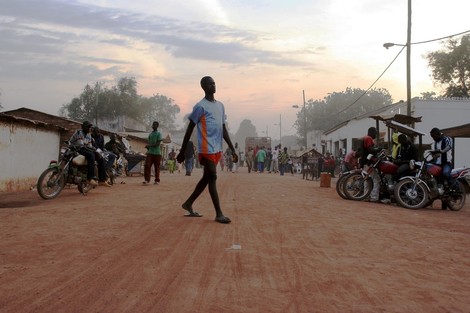Your podcast discovery platform
Curious minds select the most fascinating podcasts from around the world. Discover hand-piqd audio recommendations on your favorite topics.

piqer for: Global finds Globalization and politics
Rosebell is a multimedia communications specialist, journalist and award-winning blogger with experience in gender, peace and conflict. Currently works on public interest litigation for gender justice with focus on Latin America -Africa learning. Rosebell holds a Masters in media, peace and conflict studies from the University for Peace in Costa Rica. She is a World Economic Forum Young Global Leader.
How Not To Write About The 'World's Most Wretched' Places
In case you missed it, The New York Times columnist Nicholas Kristof recently returned from Central African Republic (CAR). In a piece that I would have missed if it weren't for Columbia Law School professor Sarah Knuckey's Twitter thread, Kristof is just being Kristof—that means writing about a country struggling with several armed conflicts by resorting to long used derivatives that evoke as much hopelessness as possible.
In a world where African audiences and scholars are increasingly pushing for the media to move beyond grim and simple narratives about complex conflicts some African nations face, it is mind-boggling to watch adamant Kristof sticking to the same old parachute journalism and insisting that the work he does – portraying Africans in this country as voiceless victims who depend on outsiders for solutions – should still be respected.
Prof. Knuckey happens to have been in the same country at the same time as Kristof, and she relays a conversation with her students in which they were betting on how Kristof's work would appear. In a thread she highlights what's wrong with this kind of reporting and gives some suggestions on how to fix it. In his writing Kristof called Central African Republic the "capital of human misery" and "the world's most wretched country."
All the experts he seeks are foreign, and voices from international big NGOs telling the world what Central Africans need, while not availing the same platform to the people who are citizens and have perspectives beyond international development.
And then Kristof responded that the professor knows nothing much about journalism while in the same breath recommending that she open a blog. Even when he meets resistance from the people he is writing about, Kristof remains adamant. This article is the latest in his long line of pieces that perpetuate the idea that victimhood coverage is better than no coverage, without acknowledgment that better coverage of people facing multiple challenges, including war, is possible.
Stay up to date – with a newsletter from your channel on Globalization and politics.
